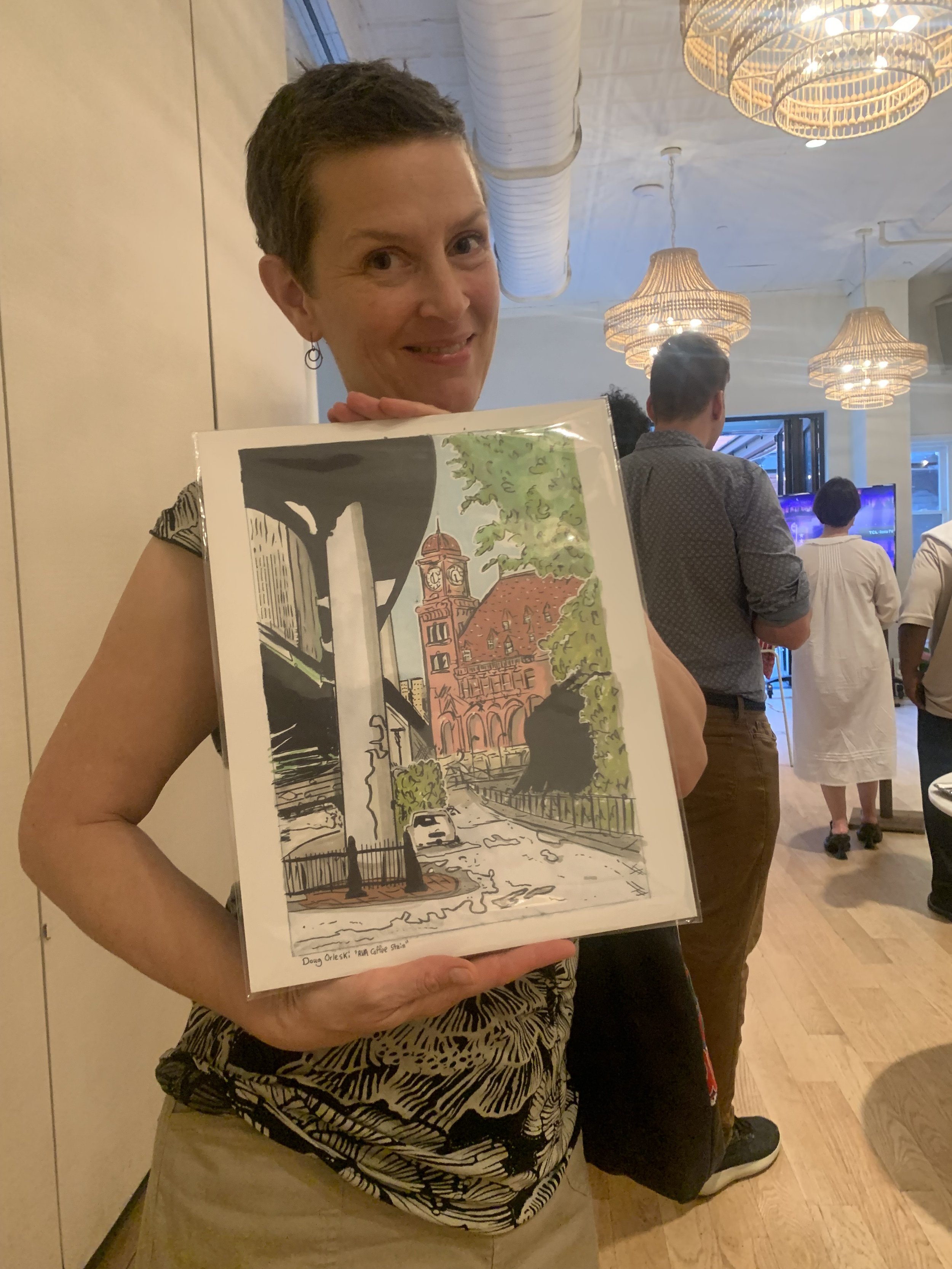Reflections from C3’s Climate Services Manager: Six Months in RVA
Six months ago, C3 officially expanded its reach from Charlottesville into Richmond. This corresponded with my own move to the area (plus the addition of two other RVA-based team members), so C3 and I have grown into Richmond together. C3 focuses on locally based coalition building, climate friendly policies, and other local level climate action, and my own focus in the organization is on the commercial and nonprofit sectors.
So what have we learned in 6 months(ish)?
We've learned that Richmond's commercial sector contributes a disproportionate amount of the community's greenhouse gas emissions - roughly 44% for commercial buildings, plus a share of the 29% of emissions attributed to transportation. Despite making up such a large contribution to the community’s energy footprint, the commercial sector has received relatively little attention as part of the community’s sustainability efforts to date. A landscape analysis conducted by C3 in 2023 concluded that there was much room for improvement in terms of outreach to the RVA business community, and our experience on the ground in 2024 has confirmed that. RVA’s historic building stock is one of my favorite features of my new city, and it’s ripe for efficiency investments and other upgrades.
Happily, we’ve also learned that there's a lot of pent-up demand for action in the commercial sector - so many people in RVA are ready to goooooo. As one participant in our RVA landscape analysis reflected, “[t]here’s a lack of engagement…to bring in the business community to the climate conversation.” A lack of resources, coordination, and staffing all contribute: mobilizing around climate competes with other priorities, many of which feel more pressing than climate change on any given day.
Things are starting to shift with the recent publication of RVAGreen 2050, which sets goals for the commercial sector. However, there is still a strong need for coordination and partnership on this front.
Whether local action takes the form of safer and more accessible non-car mobility options, more affordable utility bills, more comfortable and functional homes and businesses, or any number of other climate-impacted necessities, people in RVA are ready to see their city move forward boldly, even if they might not identify climate as the primary reason for their advocacy. The co-benefits of climate action are real and extensive - from health and safety, to productivity, to keeping more dollars local instead of piling up in the coffers of utility company investors. (If you’re ready to take action in your business, get started here.)
Semi-finally (we’re always learning), we've also learned that there's a huge population that is either unaware, or only marginally aware, of climate issues and the monetary savings and other benefits they could achieve by tackling efficiency in their operations. Even if there is some awareness, sorting through the morass of priorities, incentives, technologies, and service providers can be too much to tackle for small business owners, non-profits, and their networks.
So often, creating a tinier environmental footprint also involves achieving tinier costs while still achieving organizational goals. Unlike having to skip the chocolate cake after dinner, foregoing unnecessary energy use through efficiency doesn’t involve a sacrifice - it means you get to have more money. More money is almost as good as more cake. We just need to find ways to prop the door open, link climate to the many other priorities that businesses have, and let people peek at the cake that awaits them.
So what happens next?
C3’s Corporate Sustainability team held its kickoff Business of Climate event in April, and was pleased to see the businesses and business advocates that came out in support. Nearly 100 people gathered at the Richmond Quirk Hotel - itself a testament to climate- and community-friendly development as a repurposed historic building - to hear from community and business leaders about the key role, and key opportunity, of the commercial sector in climate action.
Now we're focused on three big priorities.
First, we’re working with the City of Richmond and the National Renewable Energy Laboratory (NREL) through the Communities Local Energy Action Program (CLEAP) to develop 1) a database of Richmond's building stock, and 2) targeted programs to serve critical building archetypes that emerge from analysis of the database, with the help of NREL’s data experts. Stay tuned for a future blog post with more details.
Second, we’re actively recruiting for a Richmond chapter of the Green Business Alliance, which will engage business partners in a cohort focused on achieving climate emissions reductions. This program cultivates active partners who are committed to taking major steps toward climate-friendly operations. Many GBA members in Charlottesville have seen emissions and cost reductions of over 30%, even ranging as high as 50%. The environmental and monetary savings are real.
Third, we’re committed to finding pathways to engage the population that doesn't yet see the relevance of climate action for their own organizations. We’ll be focusing on a “funnel” approach that introduces simple, cost-saving steps and ground-level programs as a gateway to greater commitments and greater impacts. So many of the climate measures we need are low tech, low cost and achievable by nearly anyone. Programming thermostats, changing lights, and sealing holes in the building envelope are low-barrier solutions that have been around for many years, but still haven't been implemented in many locations. We aim to change that.
Are you interested in the next phase of C3’s work in Richmond? Want to know what the opportunities might be for your business or organization? Reach out to our team at corp@theclimatecollaborative.org.



